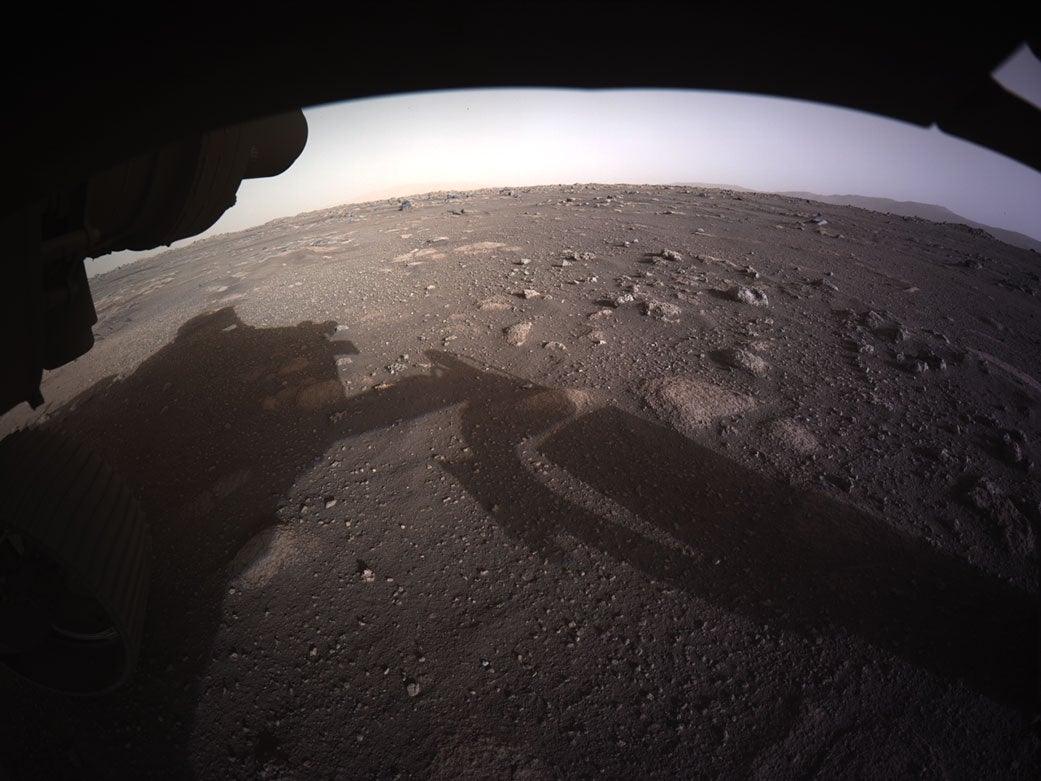Perseverance Mars rover images confirm Jezero crater was home to ancient river delta
Study shows how much water may have flowed into crater about 3.7 billion years ago and may help narrow down possible sites on Mars to look for signs of ancient alien life

Images taken by Nasa’s Perseverance Mars rover of its landing and exploration site — the Jezero crater — prove that it was once home to an ancient river delta that formed when the crater was filled by a lake.
Scientists, including those from Nasa’s Jet Propulsion Laboratory in California, believe that the new findings will help narrow down possible sites on the red planet to look for signs of ancient alien life.
Nasa had initially chosen the crater as a site for the rover’s exploration missions after an exhaustive search by the Mars Reconnaissance Orbiter (MRO) launched to survey the red planet in 2005. Scientists had thought that the area may have once been home to a river delta flooded with water, and a possible location for the Perseverance rover to look for signs of ancient microbial life once it landed in February 2021.
The new research, published in the journal Science, shows how much water may have flowed into the Jezero crater, about 3.7 billion years ago, leading to possible locations on the red planet where the rover could search for organic material and other molecules that are signatures of life.
“If you look at these images, you’re basically staring at this epic desert landscape. There’s not a drop of water anywhere, and yet, here we have evidence of a very different past. Something very profound happened in the planet’s history,” Benjamin Weiss, professor of planetary sciences at MIT in the US, said in a statement.
Researchers Nicolas Mangold and Sanjeev Gupta analysed the rover’s images of cliff faces at the edge of the crater. The images confirmed that the landscape was indeed an ancient delta and that this delta fed into an ancient Martian lake, they said.
“Without driving anywhere, the rover was able to solve one of the big unknowns, which was that this crater was once a lake. Until we actually landed there and confirmed it was a lake, it was always a question,” Dr Weiss said.
The scientists said the ancient lake varied in depth over time based on measurements of the dip of rock layers within the cliffs and the shapes and sizes of the boulders contained within them.
“The analysis shows there was a steady flow into the lake at first, consistent with a warm and humid Martian climate 3.7 billion years ago,” they noted.
In other images taken by the rover, scientists identified large boulders and cobbles embedded in the youngest, topmost layers of the delta.
Some of these boulders, measuring as wide as 1 metre across and likely weighing several tons, must have come from outside the crater, the researchers said. They were likely part of bedrock located on the crater’s rim, or about 65km or more upstream.
They added that these large boulders may have been transported to their current site by “high-energy floods”.
At the bottom of the cliffs, the scientists found layers of fine-grained clay and mudstones — types of rock that they say could potentially preserve traces of ancient life, if they “ever existed on Mars”.
In future missions, the rover will look for more locations to collect and preserve sediments that would eventually be returned to Earth for scientists to look for signs of ancient microbial life.
“We now have the opportunity to look for fossils. It will take some time to get to the rocks that we really hope to sample for signs of life. So, it’s a marathon, with a lot of potential,” Tanja Bosak, associate professor of geobiology at MIT, said.
Join our commenting forum
Join thought-provoking conversations, follow other Independent readers and see their replies
Comments
Bookmark popover
Removed from bookmarks